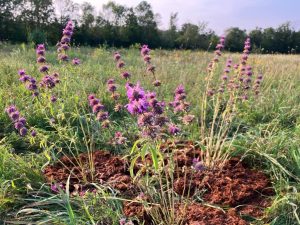Personal Reflection
Preparing for my First Clinical Placement
My first clinical placement will start this spring/summer. As I expand my nursing knowledge and transition into the RN role, it will give me a chance to strengthen my clinical knowledge, further build on my experience as a current PRN, and refine the skills necessary to provide comprehensive patient care.
My future goal is to be working in the intensive care unit. Clinical education is an important part of the education process because clinical instructors are involved in making measurable changes in students’ ability to perform clinical care by highlighting their strengths and weaknesses in instructor and student interactions (Yekefallah et al., 2021). I plan to approach my first clinical placement through constant reflection and I will think critically by applying the knowledge learned in my seminar and lectures in the clinical practice setting.
Continuity of Reflection
Self reflection has been a ongoing process throughout my academic and clinical experience. In RPN school I struggled to make connections between theoretical concepts and their practical applications in patient care. For example, understanding the underlying principles of pathophysiology and linking them to the clinical signs I observed in patients was challenging. However, through consistent reflection, I noticed patterns and integrated knowledge more effectively into my practice.
Reality shock is often a factor among student nurses who have mismatched expectations and reality of professional practice, lack confidence in working independently, and inability to multitask which further fails to establish a supportive network (Aldosari et al., 2021). I aim to grow my professional development through reflection and avoid experiencing reality shock in practice by actively working through challenges that come from transitioning from academic knowledge into clinical application. This nursing transition from knowledge into clinical practice may be difficult in terms of my ability to handle the complexities of a patients, multitasking, and decision-making which differs from controlled academic scenarios.
Connecting between experience and knowledge
My experience as an RPN has provided me with a strong foundation of practical skills and patient centered care, which I now integrate into my RN education. For example, in my NURS 1550 course, understanding polypharmacy in older adults is built on my previous exposure to medication management. Applying this knowledge, I explore how theoretical frameworks, such as patient safety and pharmacokinetics, enhance my ability to critically analyze case studies. This connection reinforces my growth as I bridge my RPN skills with the expanded scope of practice required as an RN.
Real life experiences
The program allows me to connect the education provided by the seminars to help guide my critical thinking and practice as I progress to the next semester. The seminars often present me with case studies that stimulate real-world scenarios, enabling me to apply theoretical knowledge to practical situations. These case studies challenge me to analyze complex patient cases, evaluate potential interventions, and consider ethical implications. For example, working through case studies such as in NURS 1550 “polypharmacy in older adults”. My prior work with older adults as an RPN allows me to recognize signs of adverse drug reactions, however, it further refines my ability to assess patient’s needs, risk factors, and develop evidence-based care plans.
This is important to me because I can take this knowledge to the clinical setting, where it enhances my ability to deliver safe, high-quality care. It equips me to make informed decisions, and I can advocate for patients effectively, and meaningfully contribute to the interdisciplinary health care team.
Challenging my perspectives
As an RPN, transitioning into the RN program has pushed me to expand and challenge my perspectives in profound ways. In my role as an RPN, I often focused on delivering hands on care and following established care plans. While this role developed my technical skills and patient centered approach, the RN program has required me to adopt a broader, more critical view of nursing practice
This semester I am reframing my approach of care. Instead of relying strictly on protocols. I am now encouraged to think critically, question existing protocols, and integrate theoretical frameworks into patient care. The exposure to different perspectives both in seminars and group work has helped enhance my practice.
Coaching and mentorships
Guidance from both instructors and peers has been invaluable. Both my professors and teaching assistants have provided constructive feedback on my assignment, which improves my analytical skills. This classroom model has pushed me to collaborate with other classmates which is essential in the nursing practice.
Conclusion
As I prepare for my first clinical placement this spring/summer, I will work on building on my RPN experience in the winter semester and expanding on my clinical skills to provide comprehensive patient care. My goal in working in the intensive care unit drives me to integrate critical thinking, evidence-based practices, and theoretical knowledge into real world situations. Reflecting on my experience, including challenges faced in linking theory to practice, I am to mitigate reality shock by actively engaging with the complexities of clinical care. Furthermore, guidance from instructors and peers has been invaluable in helping me refine my skills. I am confident that this clinical placement will further strengthen my abilities as I transition into the RN role.


